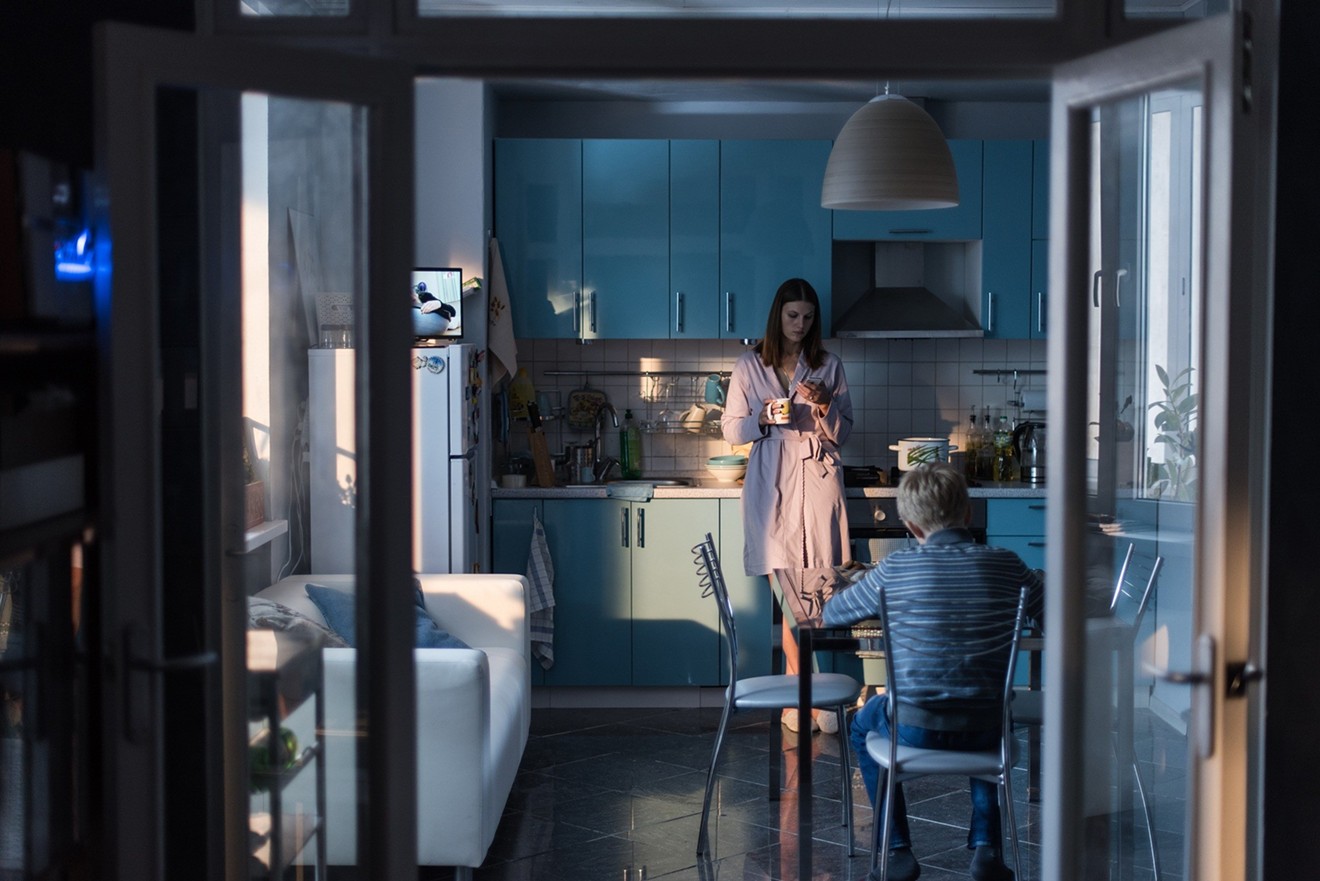Two representative moments define Andrey Zvyagintsev’s Loveless — and they are among the most devastating, harrowing things I’ve ever seen on a screen. I won’t spoil what they are, as one relies on the element of surprise and the other happens quite late. But their raw emotionalism both complicates and deepens Zvyagintsev’s film, which hovers between personal drama and deep political allegory.
The story concerns a family that maybe should never have existed: Alyosha (Matvey Novikov) is a 12-year-old boy whose bitter, distracted parents, Boris (Aleksey Rozin) and Zhenya (Maryana Spivak), are in the midst of a slow-rolling divorce. They’ve both got new partners — she’s found a wealthy older businessman, and he’s found a young traditional woman whom he’s already gotten pregnant. The parents’ almost violent disregard for their son is the stuff of fairy tale villains: Late one night, Zhenya openly talks of sending the boy to an orphanage once the divorce is finalized. Boris must object: He works for a powerful, deeply religious businessman who insists his employees all have families. (In one of the film’s few comic scenes, a coworker tells Boris about the time one colleague hired a fake wife and child for a company get-together.)
Soon, however, Alyosha goes missing, and father and mother go from inattention to irritation to anguish. The bulk of the film concerns the methodical search of the surrounding areas: The police, like most institutions in Zvyagintsev’s world, are useless, so instead the parents are helped by a group of highly organized grassroots volunteers. The hunt takes them through apartment blocks, dense forests, abandoned wastelands and, most notably, a decaying Soviet-era complex that once housed conference rooms, a movie theater and a basketball court — a massive, decrepit building that looks at times like it came right out of Andrei Tarkovsky’s Stalker.
Loveless works on a base emotional level — dear God, how it works on that level — but there’s something else going on here: The year is 2012 (which would make Alyosha the same age as Vladimir Putin’s Russia), and radios and TVs constantly blare reports about the war in Ukraine. Overt statements and symbols of piety are everywhere, but so are the signs of both out-of-control capitalism and institutional decay. The men are mostly driven, ambitious, cold. The women, even the ones in the background, veer between narcissism and desperation; they’re all selfies and mating calls. We glimpse a woman in a restaurant flirtatiously give her number to a voice behind the camera before sitting back down with her date.
“What the hell is going on here?” you might ask. “How does it connect to the story we’re being told?” The director seems to be in pursuit of a broader tapestry: The Russia he presents is a wasteland of survival, where a woman’s only hope is pairing off with a moneyed man. That, of course, is also how Boris and Zhenya wound up in this situation: At one point, she confesses that she never intended to get pregnant and had wanted an abortion.
But it goes further than that: Watching these vast, cavernous spaces, these huge buildings and dead fields, these buzzing interactions where everything seems geared toward pairing off, we start to wonder how one boy could ever be found. Late in the film, a flyer placed on a lamppost is first ignored by one person, then read and disregarded by another. We then see some more flyers, viewed from a distance, dwarfed by the buildings around them. Zvyagintsev’s Russia is a huge, heartless place where solitary souls are not allowed to exist.
[
{
"name": "Air - MediumRectangle - Inline Content - Mobile Display Size",
"component": "18478561",
"insertPoint": "2",
"requiredCountToDisplay": "2"
},{
"name": "Editor Picks",
"component": "16759093",
"insertPoint": "4",
"requiredCountToDisplay": "1"
},{
"name": "Inline Links",
"component": "17980324",
"insertPoint": "8th",
"startingPoint": 8,
"requiredCountToDisplay": "7",
"maxInsertions": 25
},{
"name": "Air - MediumRectangle - Combo - Inline Content",
"component": "16759092",
"insertPoint": "8th",
"startingPoint": 8,
"requiredCountToDisplay": "7",
"maxInsertions": 25
},{
"name": "Inline Links",
"component": "17980324",
"insertPoint": "8th",
"startingPoint": 12,
"requiredCountToDisplay": "11",
"maxInsertions": 24
},{
"name": "Air - Leaderboard Tower - Combo - Inline Content",
"component": "16759094",
"insertPoint": "8th",
"startingPoint": 12,
"requiredCountToDisplay": "11",
"maxInsertions": 24
}
]











